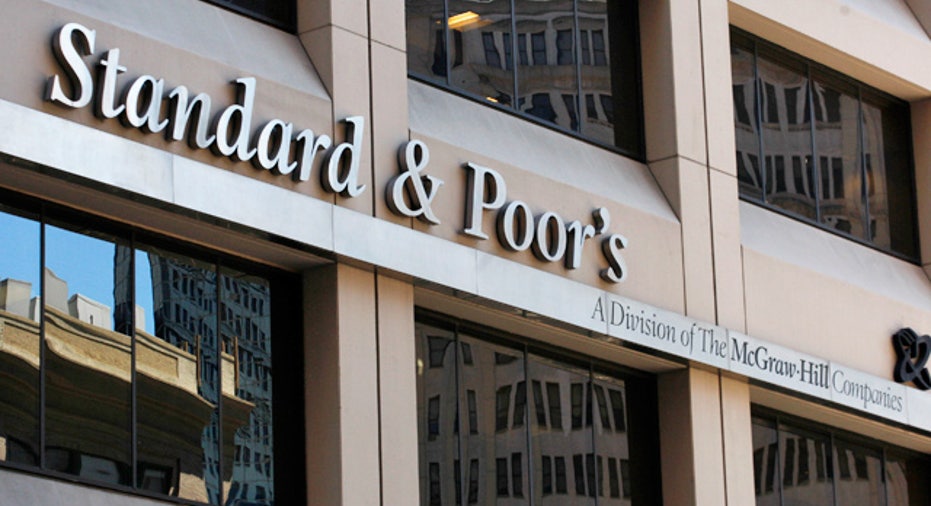Government Unveils Civil Charges Against S&P, McGraw-Hill

Citing “egregious” conduct he said contributed directly to the worst financial crisis since the Great Depression, U.S. Attorney General Eric Holder on Tuesday announced civil charges against Standard & Poor’s Ratings Services.
Holder in a televised press conference in Washington, D.C., said S&P, a unit of the McGraw-Hill Cos. (NYSE:MHP), employed a ratings model that favored the issuers -- primarily the big investment banks -- who paid S&P for ratings rather than investors who put their trust in S&P’s judgment.
“We allege that, by knowingly issuing inflated credit ratings for CDOs – which misrepresented their creditworthiness and understated their risks – S&P misled investors, including many federally insured financial institutions, causing them to lose billions of dollars,” Holder said.
“In addition, we allege that S&P falsely claimed that its ratings were independent, objective, and not influenced by the company’s relationship with the issuers who hired S&P to rate the securities in question – when, in reality, the ratings were affected by significant conflicts of interest, and S&P was driven by its desire to increase its profits and market share to favor the interests of issuers over investors,” he added.
Six state attorneys general including Illinois have also joined the suit.
Holder said documentation gathered during the investigation that led to Tuesday’s lawsuit showed that analysts at S&P were raising concerns about the viability of securities loaded with risky subprime loans as early as 2003.
The 128-page lawsuit focuses on more than 40 collateralized debt obligations, or CDOs, the government believes were improperly rated by S&P around 2007, just as the U.S. housing bubble was beginning to burst.
In short order, a couple of Bear Stearns hedge funds loaded with mortgage-backed securities collapsed, venerable investment bank Lehman Brothers fell into bankruptcy and global credit markets dried up, all of which culminated in a severe two-year recession.
S&P issued a statement Tuesday defending its ratings practices: “The DOJ and some states have filed meritless civil lawsuits against S&P challenging some of our 2007 CDO ratings and the underlying (residential mortgage-backed securities) models. Claims that we deliberately kept ratings high when we knew they should be lower are simply not true. We will vigorously defend S&P against these unwarranted claims.”
As part of its lawsuit, the DOJ cited an e-mail sent to colleagues by an S&P analyst who altered the words of an old Talking Heads song, Burning Down the House, to fit his view of what was happening in the subprime mortgage market: “Housing market went softer/ cooling down/ strong market is now much weaker/ subprime is boiling over/ bringing down the house.”
Shares of S&P’s parent company were down more than 5% Tuesday to $47.65 after falling 14% yesterday once news of the lawsuit broke.
The three primary credit rating firms -- S&P, Moody’s Corp. and Fitch Ratings -- have come under intense criticism since 2008 for their role in the financial crisis, undergoing withering questions from Congressional committees, for instance.
First Federal Enforcement Action
Tuesday’s charges are the first federal enforcement action related to suspect ratings of mortgage-backed securities.
In the wake of the financial crisis and ensuing recession, the ratings firms were heavily criticized for giving their highest ratings to securities loaded up with mortgages -- many of them risky subprime loans given to people with bad credit -- that eventually went sour.
Holder said the DOJ has identified more than $5 billion in losses resulting from CDOs that were rated by S&P between March and October 2007.
“During this period, nearly every single mortgage-backed CDO that was rated by S&P not only underperformed – but failed,” he said.
Critics have said the ratings firms should have known many of the loans they reviewed were of a poor quality and would likely be defaulted on.
At the heart of the criticism was the ratings firms’ business model in which the firms were paid by the banks that created the bonds being scrutinized, an inherent conflict of interest, critics have argued.
The Financial Crisis Inquiry Commission concluded two years ago in its report that the top credit-rating agencies were “key enablers of the financial meltdown.”
Several whistle-blowers no longer employed by the ratings agencies have told various media outlets and investigating committees that their warnings concerning the dangers of bonds comprised primarily of subprime mortgages went unheeded by their superiors.
The financial incentive was apparently too great for the ratings firms to alter their business models and begin taking a more critical eye to mortgage backed securities they were paid to rate.
S&P had reportedly been in discussions for a settlement but those talks recently broke down. It was uncertain why S&P was being targeted for charges but not its competitors. Some DOJ critics have suggested the suit may be in retaliation for S&P downgrading U.S. credit in August 2011 during a debate over raising the U.S. debt ceiling.
The attorney general said during the press conference there was “no connection” between the investigation in S&P and the downgrade.



















